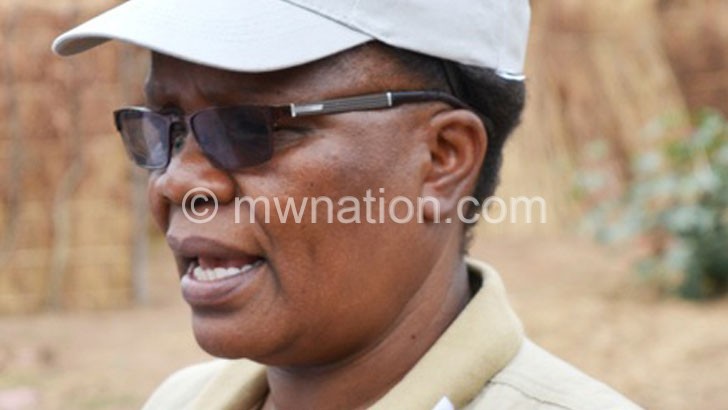Mercy Kanyuka: The first female commissioner of Statistics in Malawi
Mercy Kanyuka is a statistician by profession and has risen through the ranks throughout her career.
She later rose to become the country’s first female statistics commissioner.

As a young girl, she used to enjoy Mathematics and even passed it with a distinction during her Malawi School Certificate of Examinations.
Kanyuka started her primary school in her home village, in Blantyre rural.
She later went to several other primary schools before eventually getting selected to Providence Secondary School, where she did her Form One to Four.
The statistician was selected to Chancellor College in 1979 and graduated with a Bachelor of Social Science, majoring in Economics and Statistics.
While working for the National Statistical Office (NSO), she went for further studies in the United Kingdom where she graduated with a Master’s Degree in Quantitative Development Economics at Warwick University in 1992.
She began working for NSO in November 1983 as a statistician straight from Chancellor College.
Kanyuka rose through the ranks in various sections and divisions of NSO, before being promoted to deputy commissioner of statistics in 2001, where she served for 13 years.
She was later promoted to Commissioner of Statistics in February 2014, making her the first female Commissioner in the history of the NSO.
She retired on March 6 2022.
“I felt happy to be trusted with the ultimate leadership of NSO. I also felt this was an excellent opportunity for serving my nation. As you are aware, after serving as deputy commissioner of statistics for 13 years, you begin to have your own vision of what needs to be done.
“But if you are not the ultimate leader, it is not easy to execute your vision. I, therefore, felt this was an opportunity to make my final contribution to my country,” expressed Kanyuka.
Being a woman in the field of statistics hasn’t always proven to be easy and the retiree faced several challenges on the way which she eventually overcame.
“Statistics is a male-dominated field and it is not easy to be accepted. It, therefore, can be lonely in that respect. On top of that, any problem that crops up, people always want to attribute it to the fact that it is because there is a woman as a leader, even though nobody would say the same if the same problem was encountered by a man. It seems women have to be twice as good to receive the same approval as their male counterparts” she said.
The former commissioner added that there was a need for deliberate efforts to encourage more girls to take up the challenge of Mathematics.
“There is a general perception that Mathematics is difficult, so girls shun that subject. This can be improved mainly by teachers, who should make mathematics exciting for both girls and boys. We need more role models to encourage girls at an early age to develop an interest in this field.
“We also need some affirmative action to make sure girls can join and grow in this field. Affirmative action may include deliberate gender balance in recruitment and scholarships to those in the field,” she observed.
Despite some challenges she faced, Kanyuka still prevailed and eventually came out on top.
She explained that being appointed the first female commissioner of statistics was very significant to her due to various reasons, but mainly because it served as a role model to young women and girls that women too can rise in what are traditionally male dominated areas.
“Being appointed demonstrated that there is nothing a woman cannot do. It signified the progress that women continue to make it and will continue to rise despite facing various challenges. And it also demonstrated government’s commitment to allowing women into leadership roles,” she said.
Through her work, Kanyuka addressed many challenges, with the main being the quality of work produced by NSO. She introduced the minimum entry qualification for research assistants and the enhancement of NSO’s independence.
“This was important because as you are aware, they say garbage in garbage out. We could not afford to let our work be compromised by using under qualified staff. Again, the independence of the NSO was paramount such that all must see that any work we did was purely professional and not biased in any way.”
During her tenure as commissioner of statistics, Kanyuka oversaw the successful implementation of the 2018 Population and Housing Census (PHC), the first digital population census to use Computer Assisted Personal Interviews for capturing data in Malawi and the first census of economic activities.
This was in addition to the successful implementation of several other periodic national surveys such as the Integrated Household Survey, Demographic and Health Survey and Multiple Indicator Cluster Survey.
She also championed the functional review of the NSO which saw the restructuring of the office’s leadership structure.
More recently, she spearheaded discussions on the autonomy of the NSO.
Her greatest achievement was championing the functional review of NSO.
“The visibility, reputation and impact of the NSO have grown during my tenure. I am also particularly proud of the successful conduct of the first digital 2018 PHC and the production of the 2018 PHC district and constituency reports,” she added.
Reflecting on her work, Kanyuka explained that data analysis and report writing was what she liked best about her job.
“Those were very exciting stages of statistics work. This is the time you determine the results of all data collected during the fieldwork. Then finally dissemination of the results gives you a sense of accomplishment!” she said.
Kanyuka is particularly motivated by the transformative power of education, because education changes lives.
“I never want to see anyone fail to go to school for a reason I can deal with. As a result, I have helped many people get ahead with their education. I also keep and look after girls, both relatives and non-relatives. I generally assist the needy, young and old, whenever I can,” she said.
Her advice to girls particularly in the Mathematics field is to clear the perception that the subject is difficult and only suitable for boys, because anyone can excel in it and statistics.
“In general, I would advise girls to stay focused in their education and not get distracted with short term enjoyment such as money, men, drugs, etc because these things can destroy one’s future” she adds.
In her free time, she likes reading books, mostly Christian ones and also likes listening to preaching sermons
Kanyuka is the second born in a family of three girls and was raised by a single mother, who was also a primary school teacher.
She has one daughter and three grandchildren. She has been a widow since December 1990.





